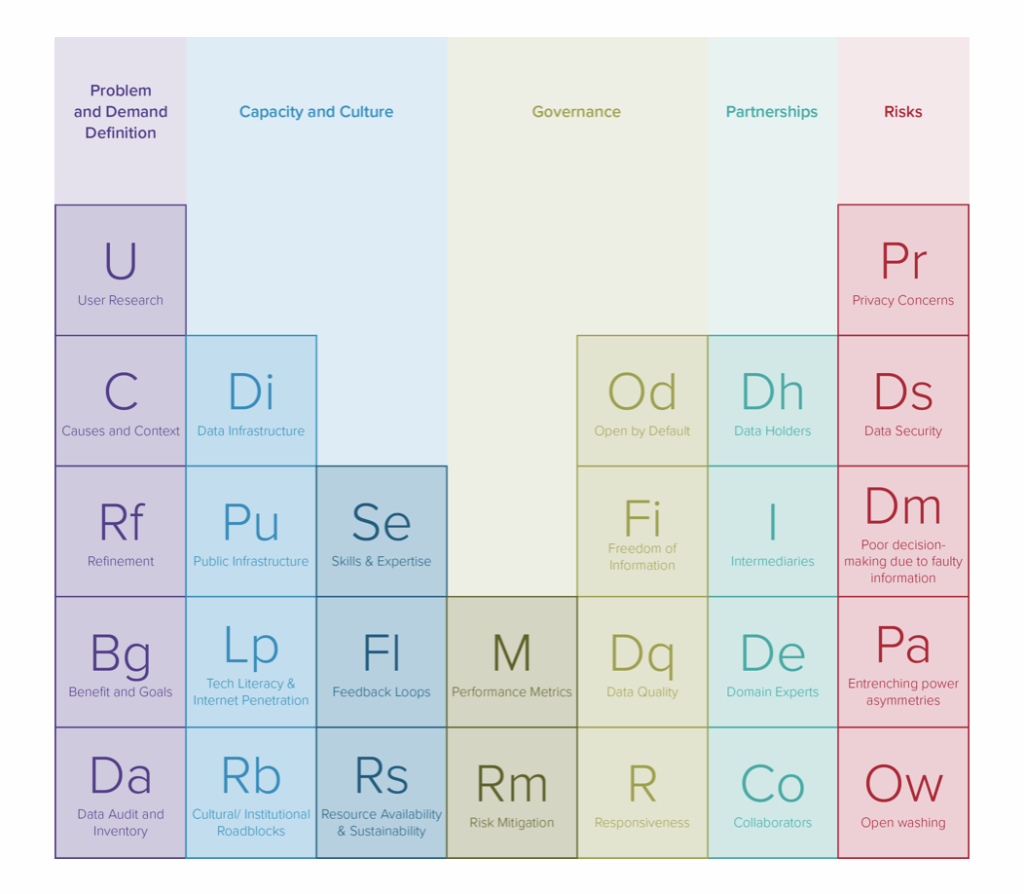Open Data’s Impact – an initiative by New York’s GovLab – is a repository of two research collections: The Global Impact of Open Data and Open Data for Developing Economies. Through this repository, the GovLab aims to build a more systematic study of open data and its impact by rigorously examining several case studies from around the world. The case studies are very well documented and systematically presented, check for example the study on Battling Ebola in Sierra Leone or on United States’ Eightmaps.
Back to Basics for Grasping Potentials of Open Data
But it doesn’t stop there: “Based on the existing literature and case studies, GovLab developed an interactive Periodic Table of Open Data Elements detailing the enabling conditions and disabling factors that often determine the impact of open data initiatives. Although the importance of local variation and context is, of course, paramount, current research and practice shows that the elements included in five central issue categories — Problem and Demand Definition, Capacity and Culture, Partnerships, Risks, Governance — are likely to either enable or disrupt the success of open data projects when replicated across countries.” Yes, they have put their condensed learnings from open data projects in a comprehensible, systematic and somewhat familiar form of knowledge transfer. I still remember studying the Periodic Table of Elements in Chemistry class decades ago… This is a fantastic new take on a traditional tool for understanding open data potentials and barriers.
Even though the Open Data’s Impact project appears as a straight forward argument for Open Data, the initiators admit to some limitations in terms of its universal approach: “It is important to recognize that this is a somewhat idealized version of open data. In truth, few forms of data possess all the attributes included in this [open data] definition. The openness of data exists on a continuum, and while many forms of information may not be strictly open in the sense described above, they may nonetheless be shareable, usable by third parties, and capable of effecting wide-scale transformation. The Open Data’s Impact repository explores case studies that leverage data across this continuum.”
Initiating Governance Innovation
Looking at the project’s initiators, the GovLab strikes as a great source of further policy and governance projects in the realm of digitization and innovation. Based in New York, they have a wide scope of tackling governance innovation through prototypes, platforms, information assessment and training. Check out, for example, their CrowdLaw project about using technology to tap the intelligence and expertise of the public in order to improve the quality of lawmaking! GovLab believes that “increased availability and use of data, new ways to leverage the capacity, intelligence, and expertise of people in the problem-solving process, combined with new advances in technology and science can transform governance.” We can only agree and will keep an eye on further projects.
